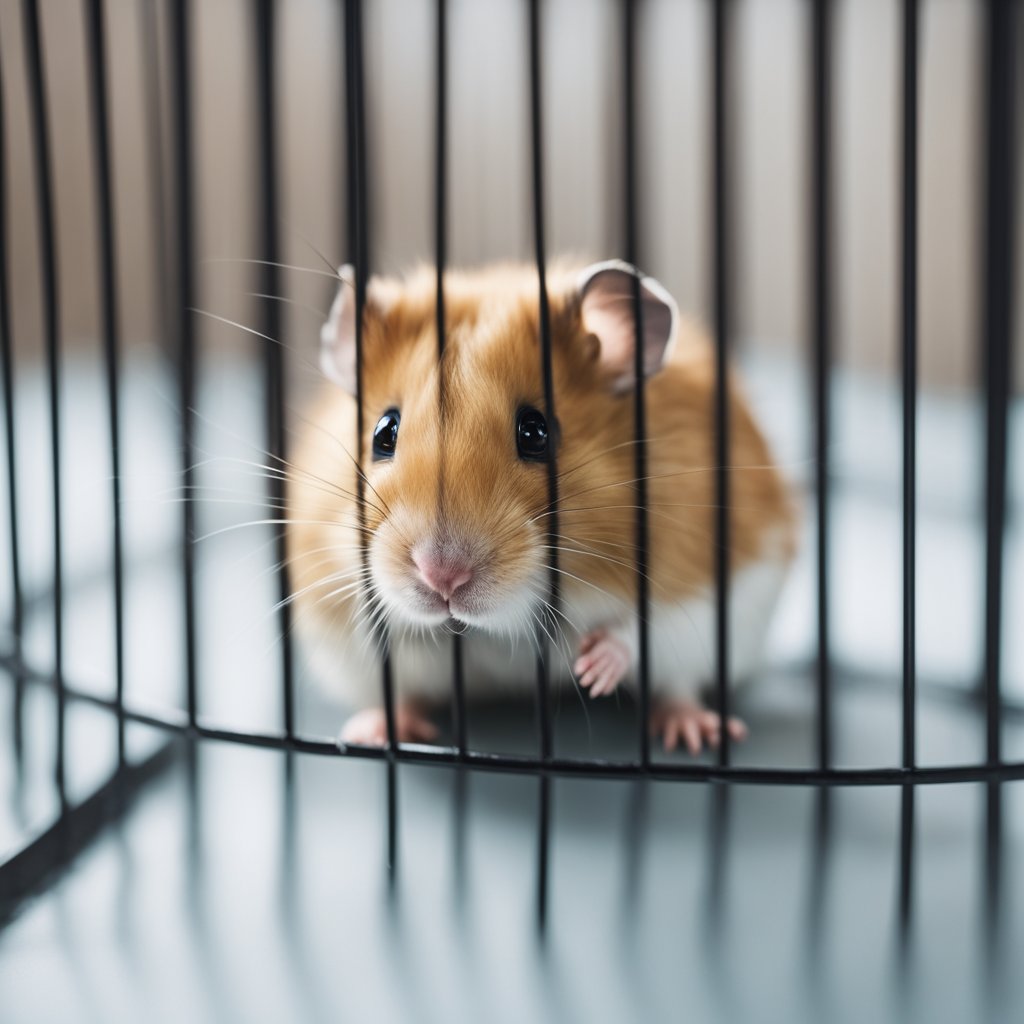What to Feed a Sick Hamster: Expert Advice
If you have a sick hamster, it can be difficult to know what to feed them to help them feel better. A sick hamster may not want to eat, or may require a special diet to aid in their recovery. In this article, we will discuss what to feed a sick hamster to help them on the road to recovery.
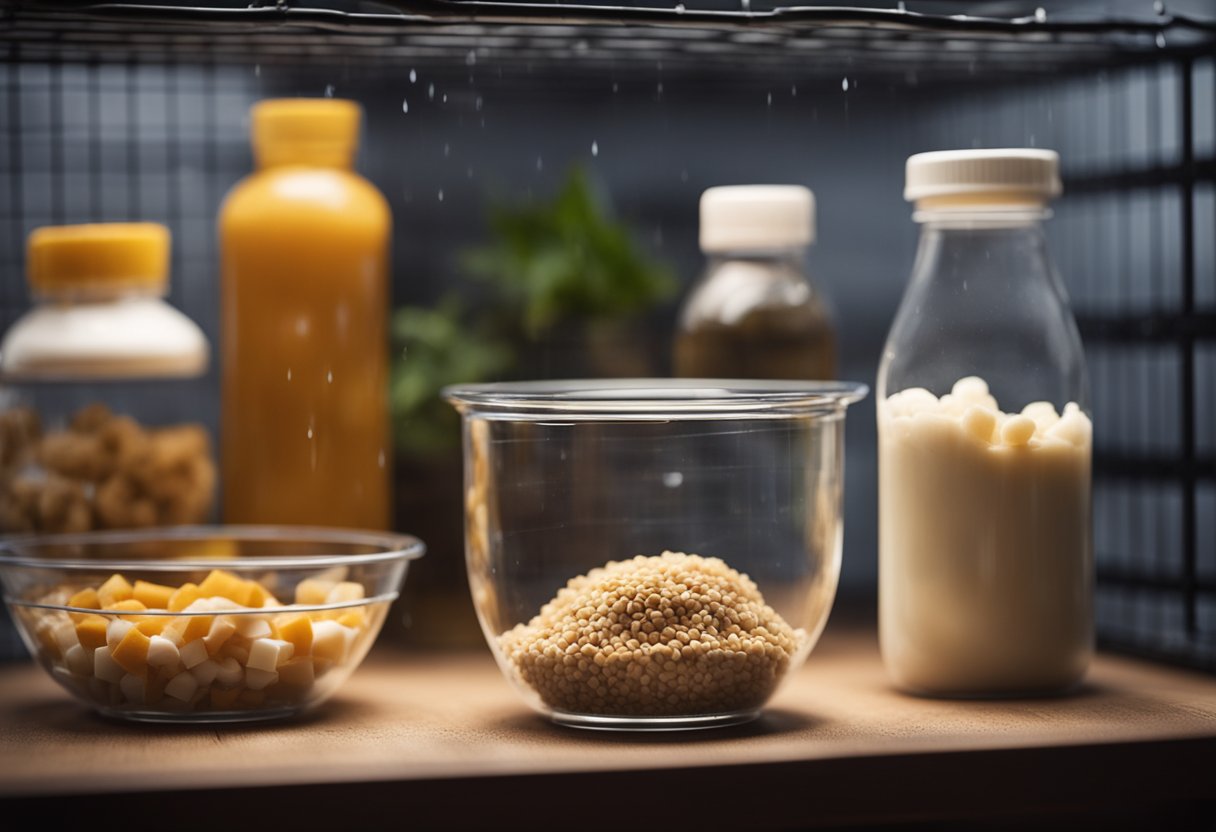
Assessing Your Hamster’s Health is the first step in determining what to feed them. If your hamster is experiencing diarrhea, vomiting, or other digestive issues, it’s important to consult with a veterinarian before making any dietary changes. Once you have determined that your hamster is sick, you can begin to make changes to their diet to help them feel better.
Nutritional Care for a Sick Hamster is crucial. Sick hamsters may require a special diet to help them recover. Feeding your hamster a diet that is high in protein and easy to digest can help them regain their strength. Foods such as cooked chicken, eggs, baby food, and high-calorie treats can all be beneficial in helping a sick hamster feel better. Additionally, it’s important to ensure that your hamster has access to clean water or Pedialyte to stay hydrated.
Key Takeaways
- Assess your hamster’s health before making any dietary changes
- Feed your hamster a diet that is high in protein and easy to digest
- Ensure that your hamster has access to clean water or Pedialyte to stay hydrated
Assessing Your Hamster’s Health
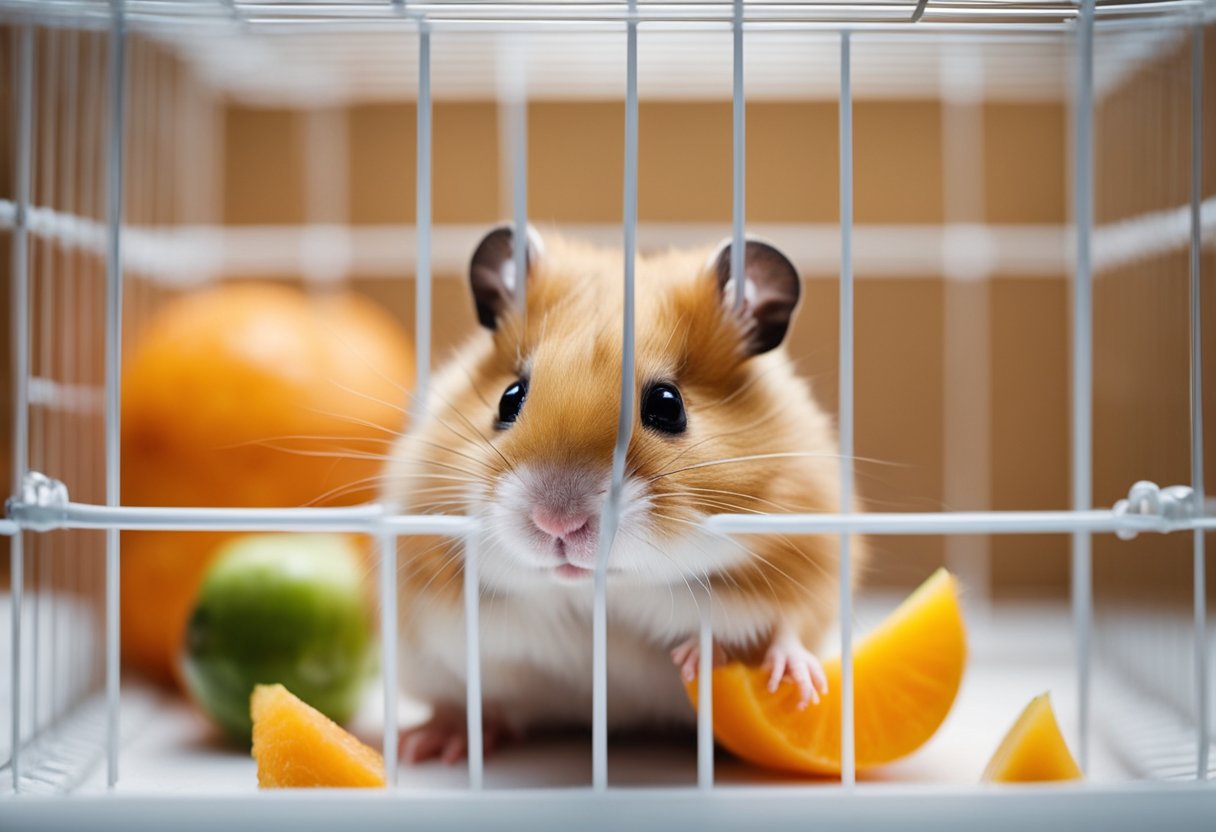
If you suspect your hamster is sick, it’s important to assess their health to determine the best course of action. In this section, we’ll cover how to identify symptoms and when to consult a vet.
Identifying Symptoms
Hamsters are known for hiding their symptoms, so it’s important to pay close attention to their behavior and physical condition. Here are some common signs that may indicate your hamster is unwell:
- Changes in behavior: A sick hamster may exhibit changes in activity level, appetite, and grooming habits.
- Respiratory issues: Wheezing, coughing, and labored breathing are all signs of respiratory distress.
- Diarrhea: Loose or watery stools can be a sign of a digestive issue.
- Loss of fur: Bald patches or thinning fur can indicate a skin issue or parasite infestation.
- Lethargy: A hamster that is unusually quiet or inactive may be feeling unwell.
When to Consult a Vet
If you notice any of the symptoms listed above, it’s important to monitor your hamster closely. If their condition worsens or if additional symptoms develop, it’s time to consult a veterinarian. Other signs that may indicate a need for veterinary care include:
- Loss of appetite or weight loss
- Bleeding
- Eye or nose discharge
- Swelling or lumps
- Inability to move or walk normally
Remember, hamsters are fragile creatures and can deteriorate quickly when sick. If you’re unsure about your hamster’s health, it’s always better to err on the side of caution and seek professional help.
Nutritional Care for a Sick Hamster

Taking care of a sick hamster can be a challenging task, but providing them with proper nutrition can help them recover quickly. Here are some nutritional care tips for a sick hamster.
Hydration
One of the most important things to consider when taking care of a sick hamster is hydration. Sick hamsters may not be able to drink water on their own, so it is important to provide them with easy access to water. You can use a small water bottle or a shallow dish to provide them with water. If your hamster is not drinking water, you can try giving them Pedialyte or a similar electrolyte solution. This will help keep them hydrated and provide them with essential nutrients.
Soft Foods
When a hamster is sick, they may have difficulty eating hard foods. Soft foods are easier to eat and digest, making them a good choice for a sick hamster. Some good options for soft foods include baby food, cooked chicken and eggs, and vegetables. You can also try feeding your hamster high-calorie treats, nuts, and seeds to provide them with extra energy. Be sure to avoid feeding your hamster sugary or fatty foods, as these can make them feel worse.
Vitamin and Mineral Support
Sick hamsters may require additional vitamins and minerals to help them recover. You can provide them with these essential nutrients by feeding them fresh fruits and vegetables. Some good options include carrots, broccoli, apples, and bananas. You can also give your hamster a small amount of honey, which is high in antioxidants and can help boost their immune system.
Overall, taking care of a sick hamster requires patience and attention to detail. By providing them with proper nutrition and hydration, you can help them recover quickly and get back to their normal, happy selves.
Resources
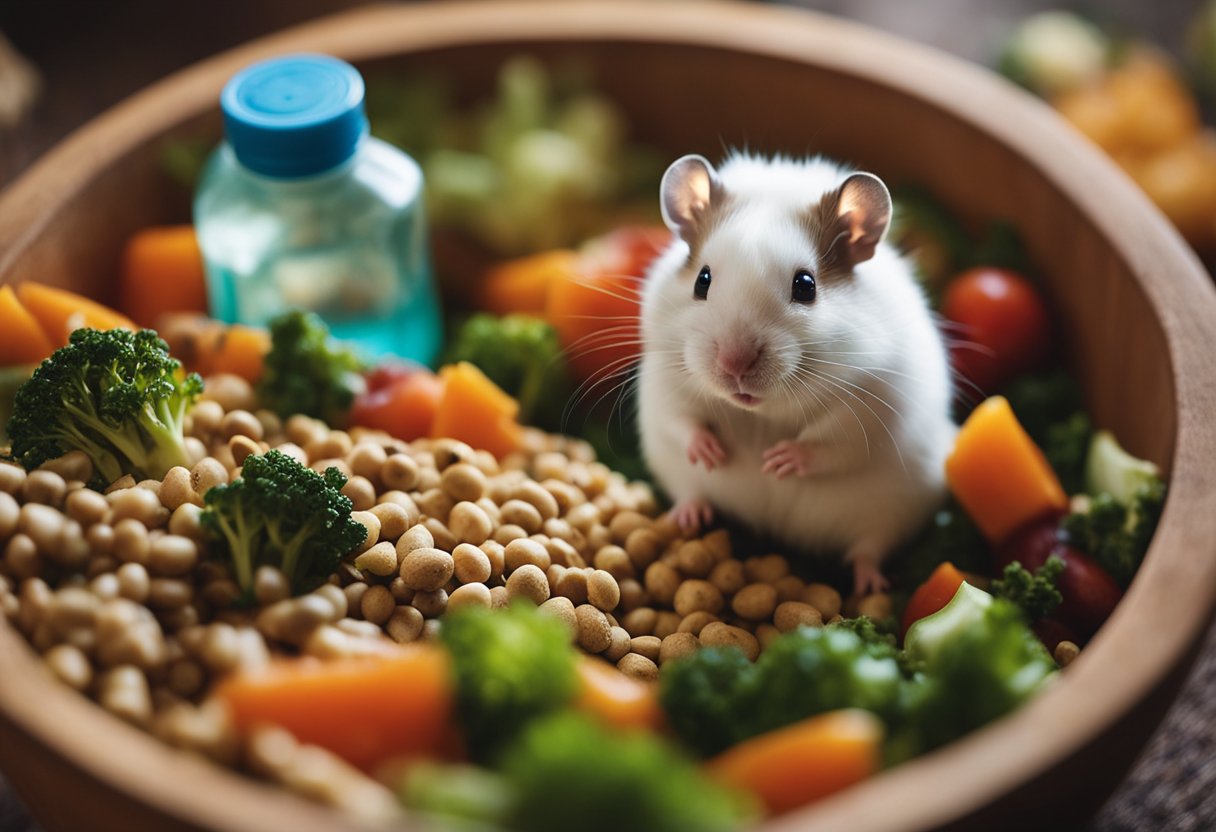
When it comes to feeding a sick hamster, there are a variety of resources available to help you make informed decisions. Here are a few helpful resources to consider:
- Veterinarian: If you suspect your hamster is sick, the first resource you should turn to is a veterinarian. They can provide you with specific advice on what to feed your hamster based on their individual condition.
- Online Forums: Online forums can be a great resource for getting advice from other hamster owners who have dealt with similar situations. Just be sure to take any advice with a grain of salt and always consult with a veterinarian before making any major changes to your hamster’s diet.
- Hamster Care Guides: There are many hamster care guides available online and in books that can provide you with general information on what to feed your hamster. Just be sure to choose a reputable source and double-check any information with a veterinarian before putting it into practice.
- Hamster Food Brands: Many hamster food brands offer specialized diets for sick hamsters. These diets are formulated to provide the necessary nutrients and calories to help your hamster recover. Just be sure to read the ingredients list carefully to ensure that the food is appropriate for your hamster’s specific condition.
Remember, when it comes to feeding a sick hamster, it’s always best to consult with a veterinarian and use reputable resources to ensure that your hamster gets the care they need to make a full recovery.
Conclusion
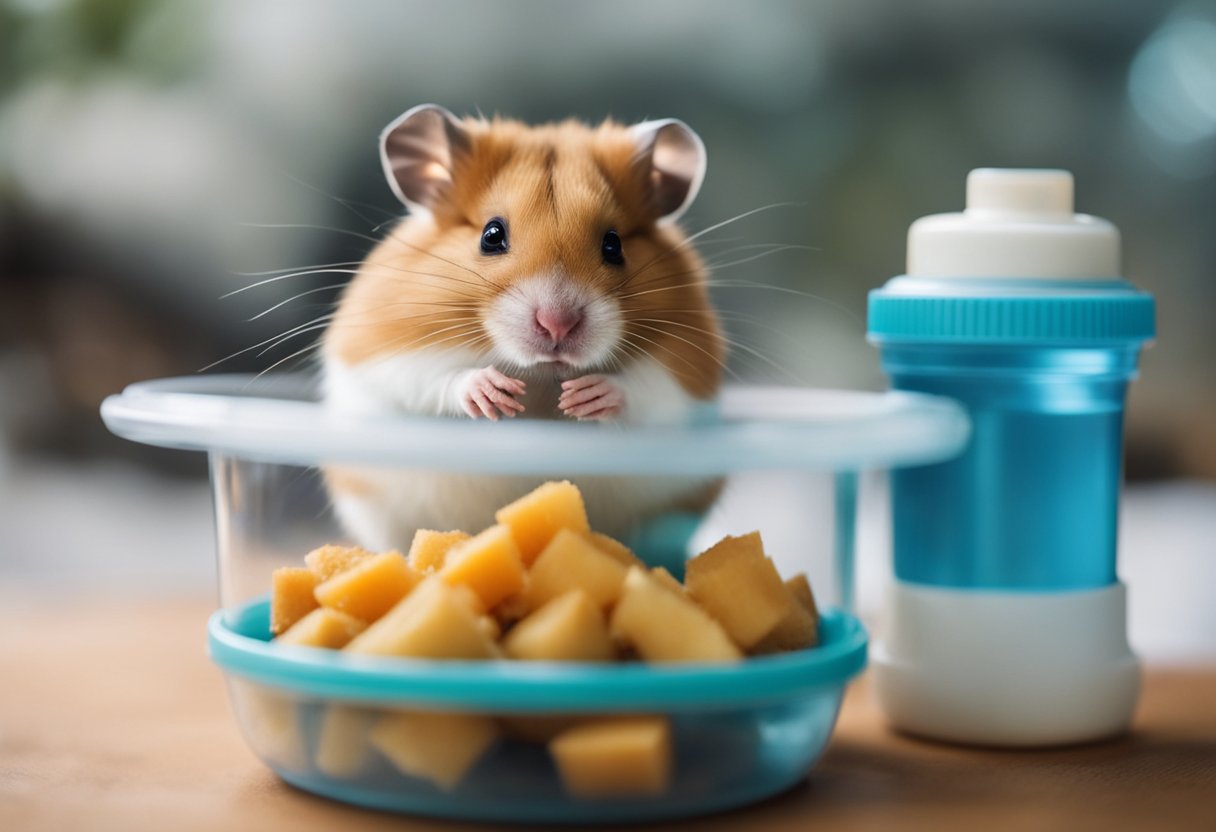
In conclusion, feeding a sick hamster requires special attention and care. You should provide your hamster with easily digestible food that is high in protein, such as chicken, eggs, and baby food. Vegetables and fruits should also be included in their diet to provide essential nutrients and vitamins.
It is important to keep your hamster hydrated during their illness. You can use a syringe to hydrate them with Pedialyte, giving them 10 ml of water for each 100 grams of body weight. Be sure to avoid touching your sick hamster as much as possible to avoid unnecessary stress.
If you notice any signs of illness, such as changes in behavior or physical condition, it is important to seek veterinary care immediately. A veterinarian can provide additional guidance on how to care for your sick hamster and may recommend additional treatments or medications.
By following these guidelines and seeking veterinary care when necessary, you can help your sick hamster recover quickly and return to their happy and healthy self.
Frequently Asked Questions
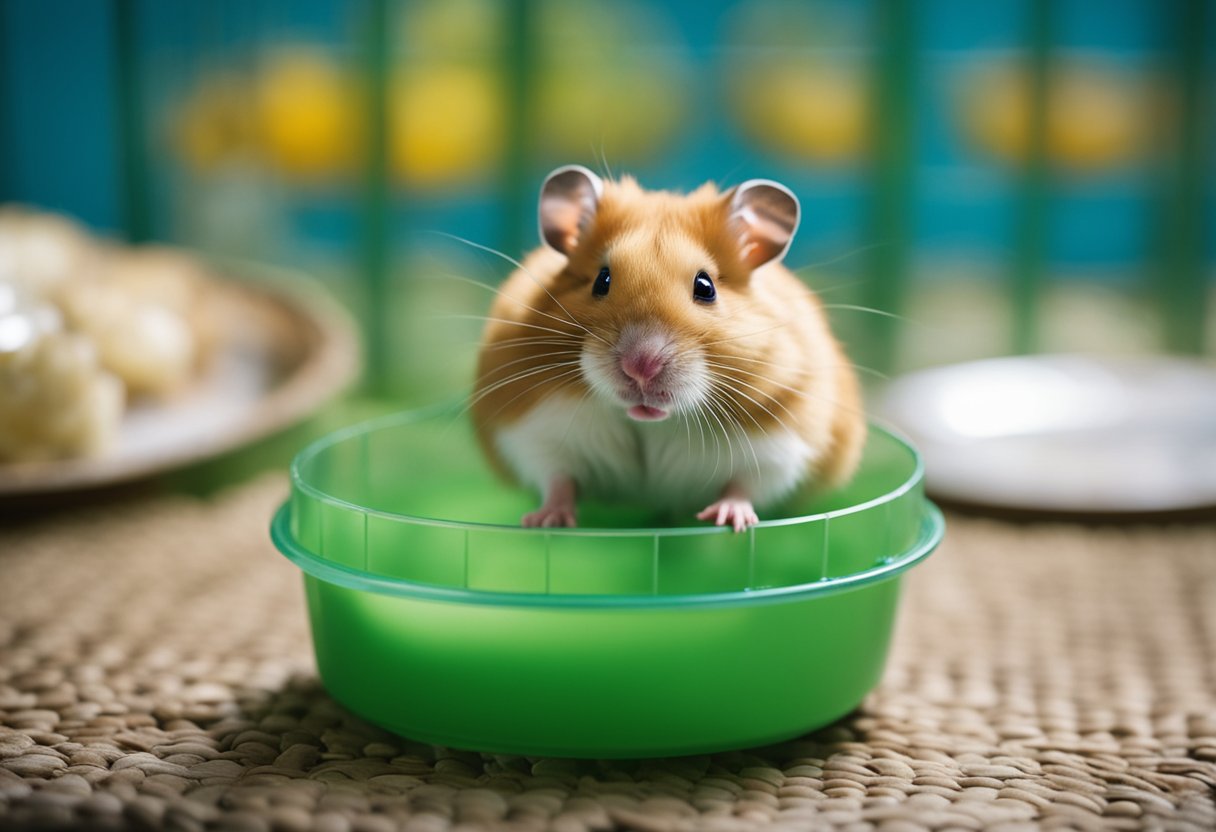
How can I ensure proper nutrition for my hamster during illness?
Proper nutrition is crucial for a sick hamster’s recovery. Make sure to offer your hamster a balanced diet that is high in protein and easy to digest. Soft foods like cooked eggs, baby food, and pureed vegetables can be given to a sick hamster. You can also offer a small amount of honey to help boost their energy levels.
What are safe foods to syringe feed a hamster that won’t eat on its own?
If your hamster is not eating on its own, you may need to syringe feed them. Safe foods to feed a sick hamster include Pedialyte, which helps prevent dehydration, and a mixture of water and unflavored electrolyte powder. You can also offer a small amount of baby food or vegetable puree through the syringe.
Which human foods are safe to give to a hamster when regular feed is unavailable?
When regular feed is unavailable, you can offer your hamster small amounts of cooked chicken, hard-boiled eggs, and small pieces of fresh fruits and vegetables. However, it’s important to avoid giving your hamster any processed or sugary foods, as these can be harmful to their health.
How can I identify if my hamster’s diet is affecting its health?
If your hamster’s diet is affecting its health, you may notice symptoms such as weight loss, diarrhea, or a lack of energy. It’s important to monitor your hamster’s eating habits and seek veterinary attention if you notice any concerning changes.
What dietary changes should I make for a hamster showing signs of sickness?
If your hamster is showing signs of sickness, it’s important to make dietary changes to help support their recovery. Offer soft, easy-to-digest foods like cooked eggs, baby food, and pureed vegetables. You can also add a small amount of honey to their diet to help boost their energy levels.
Are there any specific foods to avoid feeding a hamster that is not feeling well?
When your hamster is not feeling well, it’s important to avoid giving them any sugary or processed foods, as these can be harmful to their health. Additionally, you should avoid giving them any foods that are high in fat or difficult to digest, such as nuts or seeds.
